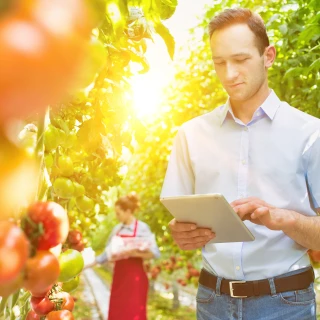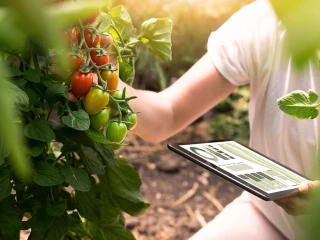Sustainability and origin
Another important aspect is sustainability. Consumers are increasingly aware of the importance of sustainably produced food. Supermarkets are moving with this trend. As a food production company, you want to be able to demonstrate that your product is green and has the highest possible score on sustainability labels such as Eco-Score or the Nutri-Score that will be introduced in Europe next year.
With the help of recipe management in ERP you are able to record the data about the raw materials. And with traceability, you can always show where the raw materials in your product come from. SAP in particular – in which the experts at delaware have a great deal of expertise – is fully committed to sustainability. We can help you set the software to track the sustainability levels of your end product.
Did you know that 'traceability' is not only important for sustainability? When your products contain possible allergens, or custom products for specific diets, it is very important to keep track of the origin of raw materials / ingredients. After all, you want to be sure that no traces of allergens have found their way into products.
With recipe management in SAP ERP software, you can be sure that your products are always consistent and you are aware of the origin of the raw materials and ingredients at all times.


/sap-s4hana-new-1920x355-(1).webp?mode=autocrop&w=320&h=240&attachmenthistoryguid=27e84869-f6bc-446c-9589-c1a0ca2e9628&v=&focusX=1239&focusY=203&c=cfc7db9f48a8f644d76767229ec5b434566ef5c17f3319b5f0f73832bee67af2)
/S4HANA-migration-1920x355-(1).webp?mode=autocrop&w=320&h=240&attachmenthistoryguid=bd243b4e-eed0-4b97-a7a3-7bafde4d72d0&v=&c=fcf4bafbcce5228f4071df89dd67a7d88b6c647dc11853365676a49c861fecaf)